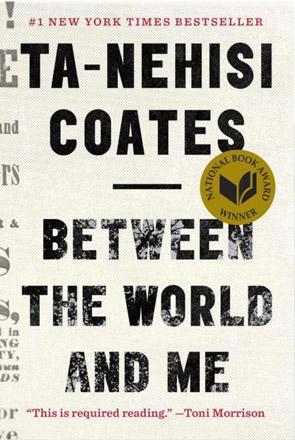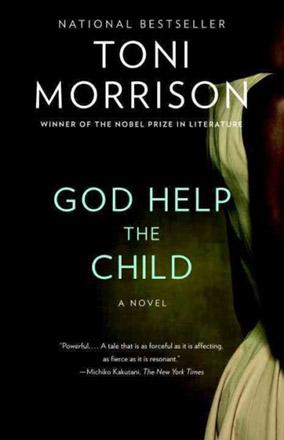You are here
‘This terrible and beautiful world’
Jul 09,2017 - Last updated at Jul 09,2017

Between the World and Me
Ta-Nehisi Coates
New York: Spiegel & Grau, 2016
Pp. 152
“Between the World and Me” is a long letter from a father to his fifteen-year-old son, written with deep feelings, analysis, hopes and fears for the latter’s future. Ta-Nehisi Coates’s prose is beautiful even as it is shocking, for it is a hard reality he addresses.
Though he has been able to shield his son from some of the perils of his own upbringing in Baltimore in the 80s, racism is still very much alive in today’s America, punctuated by the all-too-frequent police shootings of young black men in particular. He writes to warn his son of the dangers and to convey to him an analysis of society that will arm him to survive and not let racism overwhelm his self-perception and dreams. In the process, he upends many preconceived notions about race and racism.
Coates traces today’s ongoing murders back to the pillage and violence of slavery “and various other acts meant, first and foremost, to deny you and me the right to secure and govern our own bodies”. (p. 8)
One of his main points is how visceral racism is: “it dislodges brains, blocks airways, rips muscles, extracts organs, cracks bones, breaks teeth... the larger culture’s erasure of black beauty was intimately connected to the destruction of black bodies”. (pp. 10, 44)
Most incisively, Coates asserts that racism begets race, not the other way around. In all different times and places, human beings have had different shades of skin colour, different features and hair textures. Yet, it is only when society is organised in a hierarchy according to these qualities that racism emerges and creates race, whereby physical features are believed to signify permanent traits. To set the record straight, he speaks of “Americans who believe they are white” and the enormous diversity among people who are considered black. (p. 6)
Coates wants his son to join his own life-long quest: “How do I live free in this black body?” (p. 12)
His ambitions go way beyond the legal rights achieved, however imperfectly, in the civil rights movement. His concern is that his son and future generations of black Americans can live dignified lives, free of fear for their bodies, and fulfill their potentials. “I would have you become a conscious citizen of this terrible and beautiful world,” he writes to his son. (p. 108)
“Between the World and Me” is a fascinating glimpse into African-American culture and heritage. One learns anew about what has made black Americans live in poverty and fear but also what has made them proud, creative and resilient. Especially interesting is Coates’s telling of how he gained an understanding of America’s real history from experience and study. His letter to his son is an updating and further development of the pathway blazed by his father, Paul Coates, who spent his life unearthing and reprinting books about ancient African civilisations so African Americans could educate themselves about their historical past.
Coates also shares the awakening he experienced on attending Howard, the most advanced of the US’s historically black universities, which he calls The Mecca. He describes the impact music had on him, from rap to hip-hop to African rhythms, and how he was influenced by a whole range of Black intellectuals, leaders and performers, from Malcolm X to Bob Marley.
This is a chronicle of an ever-growing consciousness that Coates wants to pass on to his son. Still, he anticipates that his son will not follow exactly in his path, but make his own way. After much floundering in his youth, Coates came into his own as a writer at about the time he married, moved to New York and eventually became a father.
Despite repeatedly showing how “those who think they are white” have built their prosperity on the ruin of black bodies, Coates does not preach hate to his son, but expresses sadness at such ignorance; his blame falls on the system not
individuals. The young black man whose murder affected him most deeply was killed by a black policeman: “Being Black did not immunise us from history’s logic.” (p. 53)
For the sheer poetry of his writing, his acute sense of injustice, yet refusal to be unilaterally cast as a victim, Coates can be seen as the James Baldwin of our times.
If fascinated by this book, one can read further about the experiences that formed his thinking by reading his memoir, “The Beautiful Struggle”.
Related Articles
“Americanah” is the story of Ifemelu who leaves Nigeria for the United States to find better education and career opportunities, yet despite her success chooses in the end to return to her native country.
This is a novel that celebrates love, caring, sincerity and intellect, but the opposing forces — intolerance, violence, hypocrisy and ignorance — loom large in the story. Obviously, Saudi author Laila Aljohani is not living in a bubble, but is keenly aware that one is not always rewarded for giving love or sticking to one’s principles. What happens to her beautifully crafted main characters when they fall in love, illustrates the point.
















